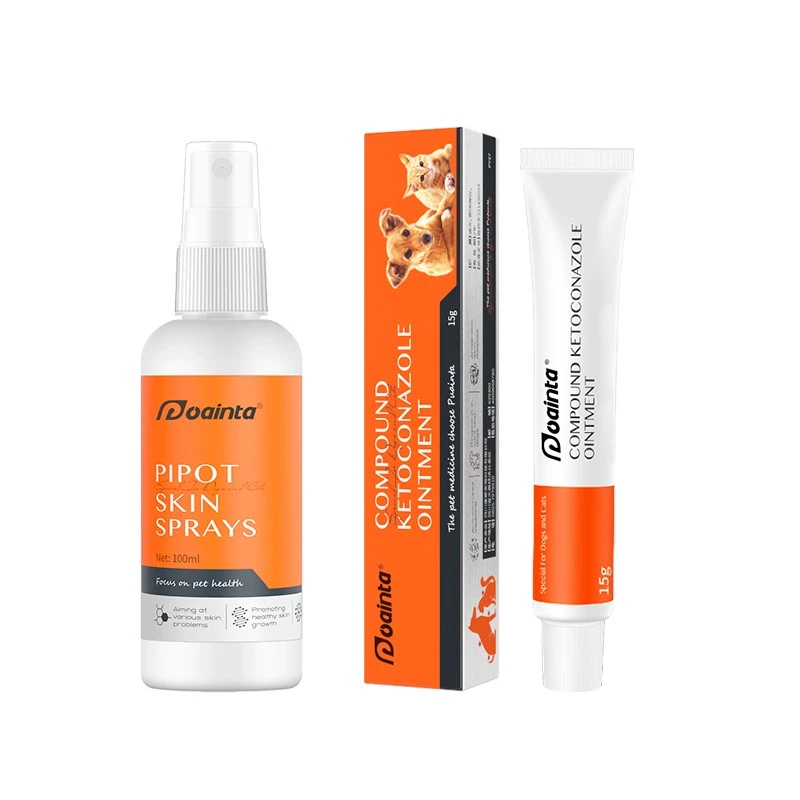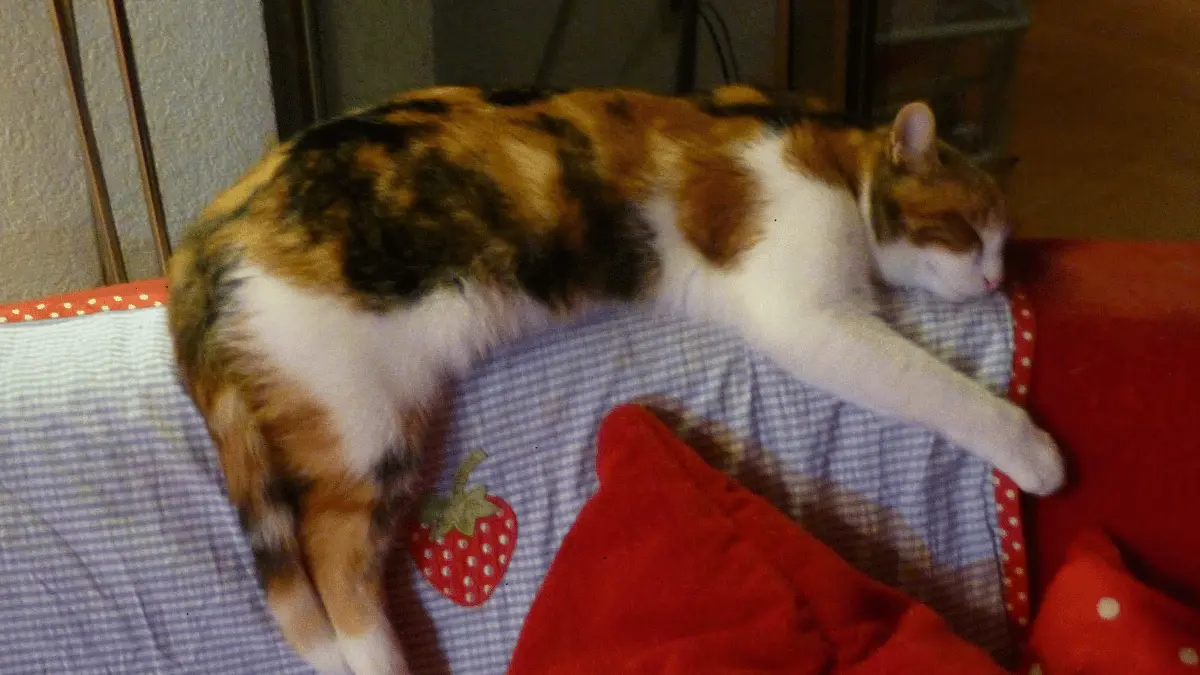Ringworm in Cats
Learn about ringworm in cats, including causes, symptoms, diagnosis, treatment, and prevention. Keep your feline friend healthy!
Ringworm, despite its name, is not caused by worms but rather by a fungal infection that affects the skin, hair, and sometimes the nails of both humans and animals. While it’s typically not a serious condition, ringworm in cats can be uncomfortable and contagious.
Here’s how to manage ringworm in cats, including treatment, prevention, and quarantine measures:
How Do You Get Rid of Ringworm on a Cat?
- Antifungal Treatment: Your veterinarian may prescribe antifungal medications, either topical or oral, to treat ringworm in your cat. These medications work to eliminate the fungus causing the infection.
- Topical Treatments: Antifungal shampoos, creams, or metronidazole for ringworm ointments may be applied directly to the affected areas of your cat’s skin to help clear up the infection and soothe any discomfort.
- Systemic Medications: In more severe cases or if the infection is widespread, oral antifungal medications may be necessary to treat ringworm from within.
- Environmental Decontamination: Since ringworm spores can survive in the environment, it’s essential to thoroughly clean and disinfect your home to prevent recontamination. Wash bedding, toys, grooming tools, and other items that may have come into contact with your cat.
- Isolation: Keep the infected cat separated from other pets in the household to prevent the spread of ringworm. Quarantine measures should be implemented until the infection has resolved.

Can Ringworm Spread from Cat to Human?
Yes, ringworm can spread from cats to humans through direct contact with an infected animal or contaminated objects. The fungus responsible for ringworm can survive on surfaces such as furniture, carpets, and clothing, making it easy for humans to become infected. Children, the elderly, and individuals with weakened immune systems are particularly susceptible to ringworm.
How Long to Quarantine Cat with Ringworm?
Quarantine measures for a cat with ringworm should continue until the infection has resolved, and your veterinarian confirms that your cat is no longer contagious. This typically involves a combination of antifungal treatment, regular monitoring of the cat’s condition, and follow-up testing to ensure that the infection has cleared.
During the quarantine period, it’s essential to practice good hygiene and disinfection protocols to prevent the spread of ringworm to other pets and humans in the household. Keep the infected cat’s living area clean and separate from other pets, and wash your hands thoroughly after handling the cat or any items that may have come into contact with the fungus.
Conclusion
In conclusion, managing ringworm in cats requires a combination of antifungal treatment, environmental decontamination, and quarantine measures to prevent the spread of infection. With proper care and precautions, most cases of ringworm in cats can be successfully treated, and affected pets can return to normal activities once they are no longer contagious.
Expert Q&A: Understanding Ringworm in Cats
Ringworm, a fungal infection, can affect cats and humans alike. Here’s a breakdown of common queries related to cat ringworm:
- How can I tell if my cat has ringworm? Ringworm in cats often appears as circular patches of hair loss, scaly skin, and sometimes redness or inflammation. These patches may be itchy for your cat.
- Is cat ringworm contagious to humans? Yes, cat ringworm is contagious to humans. Direct contact with an infected cat or contaminated objects can transmit the infection.
- How do you get rid of ringworm on a cat? Treatment usually involves antifungal medication prescribed by a veterinarian, along with topical treatments and environmental decontamination.
- Is it OK to touch a cat with ringworm? While it’s not advisable to touch a cat with ringworm without proper protection, if you must handle them, wear gloves and wash your hands thoroughly afterward.
- How did my house cat get ringworm? Ringworm in cats can be acquired through contact with infected animals or contaminated environments. It’s common in multi-cat households, shelters, or areas with poor hygiene.
- Can cats get ringworm from litter? Ringworm can spread through contaminated objects, including litter boxes. Regular cleaning and disinfection can help reduce the risk of transmission.
- Can I cuddle my cat with ringworm? Avoid cuddling your cat if they have ringworm to prevent transmission to yourself or other pets. Seek treatment and follow veterinarian advice for safe handling.
- Will cat ringworm go away by itself? Cat ringworm may not resolve without treatment and can persist or spread if left untreated. Veterinary intervention is crucial for effective management.
- How do you treat ringworm in cats without going to the vet? It’s strongly recommended to consult a veterinarian for proper diagnosis and treatment of cat ringworm. Over-the-counter remedies may not be effective and could worsen the condition.
- Is apple cider vinegar good for ringworm in cats? Apple cider vinegar is not a proven treatment for cat ringworm. It’s best to rely on veterinary-prescribed medications and treatments.
- How do you get rid of ringworm fast? Fast and effective treatment of ringworm involves antifungal medications, environmental decontamination, and proper hygiene practices for both pets and humans.
- How do you get rid of ringworm fast at home? At-home remedies for ringworm in cats may include bathing with antifungal shampoos and keeping the environment clean, but consulting a vet is crucial for proper diagnosis and treatment.
- Can vinegar cure ringworm? While vinegar may have some antifungal properties, it’s not a reliable cure for ringworm. Veterinary-prescribed medications are more effective for treating the infection.
- What are the stages of ringworm? Ringworm typically progresses through stages including initial exposure, incubation, onset of symptoms, and resolution with appropriate treatment.
- What does healing ringworm look like in cats? As ringworm heals in cats, you may notice the affected areas becoming less inflamed, hair starting to regrow, and the overall condition improving with proper treatment.
Understanding cat ringworm is crucial for effective management and prevention of transmission. Consult a veterinarian for personalized guidance and treatment options tailored to your cat’s needs.
References
This section provides a list of credible sources used in the creation of this blog post on ringworm in cats.
- Pet Radar (https://www.petsradar.com/advice/ringworm-in-cats) offers an informative overview of ringworm in cats, including symptoms, causes, diagnosis, and treatment options.
- GoodRx (https://www.goodrx.com/conditions/ringworm) provides details on the cost of ringworm treatment for cats.
- Vets4Pets (https://www.vets4pets.com/pet-health-advice/cat-advice/ringworm-in-cats/) provides information on signs and symptoms of ringworm in cats, potential complications, and prevention methods.
- WikiHow (https://www.wikihow.com/Identify-and-Treat-Ringworm) offers a guide on how to recognize and treat ringworm in cats, including home remedies.
- PDSA (https://www.pdsa.org.uk/pet-help-and-advice/pet-health-hub/conditions/ringworm-in-cats) provides a comprehensive guide on ringworm in cats, covering causes, symptoms, diagnosis, treatment, and prevention.
- The Spruce Pets (https://www.thesprucepets.com/ringworm-in-cats-4175211) offers information on signs, symptoms, and treatment options for ringworm in cats.
- Veterinary Partner (https://veterinarypartner.vin.com/doc/?id=4951439&pid=19239) provides a detailed scientific article on dermatophytosis, the fungal infection that causes ringworm, in cats.
- PetMD (https://www.petmd.com/cat/conditions/skin/c_ct_dermatophytosis) provides information on the causes, symptoms, diagnosis, and treatment of ringworm in cats.
- Hill’s Pet Nutrition (https://www.hillspet.com/cat-care/healthcare/ringworm-in-cats?lightboxfired=true) provides an informative article on ringworm in cats, covering transmission, diagnosis, and treatment options.
- VCA Hospitals (https://vcahospitals.com/know-your-pet/feline-herpesvirus-infection-or-feline-viral-rhinotracheitis) provides an overview of ringworm in cats, including causes, symptoms, diagnosis, and treatment.
- Cornell Feline Health Center: provides information on ringworm in cats, including risk factors, symptoms, diagnosis, and treatment.
- Microsoft Start: provides access to expert answers on ringworm in cats from veterinary professionals.
It is important to note that the information provided in this blog post is intended for general informational purposes only and should not be construed as a substitute for professional veterinary advice. Always consult with a qualified veterinarian for diagnosis and treatment of any health concerns your cat may have.














